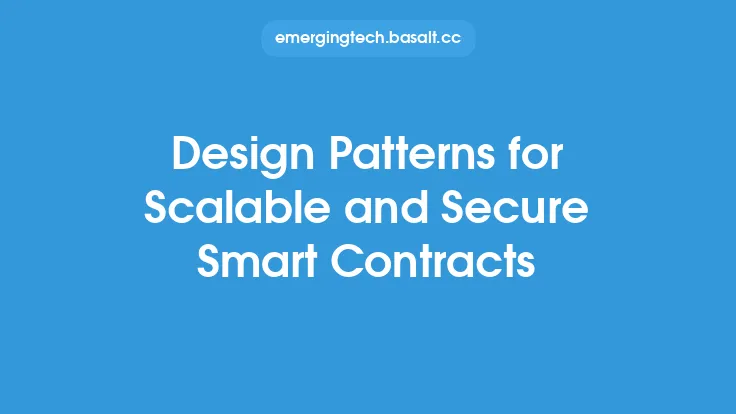When it comes to developing smart contracts, one of the most critical decisions you'll make is choosing the right programming language. With so many options available, it can be overwhelming to determine which language is best suited for your project. In this article, we'll explore the key factors to consider when selecting a programming language for smart contract development, and provide an overview of the most popular languages used in the industry.
Key Considerations for Choosing a Programming Language
Before we dive into the various programming languages used for smart contract development, it's essential to consider the key factors that will influence your decision. These include:
- Platform compatibility: Different blockchain platforms support different programming languages. For example, Ethereum supports Solidity, while Binance Smart Chain supports Solidity and Rust.
- Security: Smart contracts handle sensitive data and assets, so it's crucial to choose a language that has robust security features and a strong focus on security.
- Performance: The performance of your smart contract will depend on the language you choose. Some languages are optimized for speed, while others prioritize security and reliability.
- Development complexity: The complexity of your smart contract will also impact your choice of language. Some languages are more suitable for simple contracts, while others are better suited for complex, multi-functional contracts.
- Community support: The size and activity of a language's community can significantly impact your development experience. Look for languages with active communities, extensive documentation, and plenty of resources.
Popular Programming Languages for Smart Contract Development
Now that we've covered the key considerations, let's take a look at some of the most popular programming languages used for smart contract development:
- Solidity: Solidity is the most widely used programming language for smart contract development, particularly on the Ethereum platform. It's an object-oriented language that's similar to JavaScript and C++.
- Rust: Rust is a systems programming language that's gaining popularity in the smart contract development space. It's known for its focus on security and performance, making it an excellent choice for building high-performance smart contracts.
- Vyper: Vyper is a Python-based language that's designed specifically for smart contract development. It's known for its simplicity and ease of use, making it an excellent choice for developers who are new to smart contract development.
- Chaincode: Chaincode is a programming language developed by IBM for use on the Hyperledger Fabric platform. It's a Go-based language that's designed for building complex, multi-functional smart contracts.
Language Comparison
Each programming language has its strengths and weaknesses, and the choice ultimately depends on your specific needs and goals. Here's a brief comparison of the languages mentioned above:
- Solidity: Pros - widely adopted, extensive community support, and a large pool of developers. Cons - can be complex and difficult to learn, especially for developers without prior experience with object-oriented programming.
- Rust: Pros - focus on security and performance, modern and efficient language design. Cons - can be challenging to learn, especially for developers without prior experience with systems programming.
- Vyper: Pros - simple and easy to learn, Python-based syntax makes it accessible to a wide range of developers. Cons - limited platform support, still a relatively new language with a small community.
- Chaincode: Pros - designed specifically for building complex smart contracts, extensive support from IBM and the Hyperledger community. Cons - limited platform support, can be challenging to learn for developers without prior experience with Go.
Conclusion
Choosing the right programming language for smart contract development is a critical decision that can significantly impact the success of your project. By considering factors such as platform compatibility, security, performance, development complexity, and community support, you can make an informed decision that meets your specific needs and goals. While Solidity remains the most widely used language for smart contract development, other languages like Rust, Vyper, and Chaincode are gaining popularity and offer unique advantages and disadvantages. Ultimately, the choice of language will depend on your specific requirements, and it's essential to carefully evaluate each option before making a decision.





